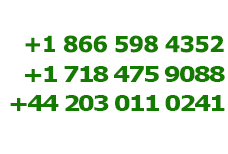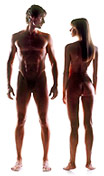Hydrocortisone topical
What is hydrocortisone topical?
Hydrocortisone is a topical steroid. It reduces the actions of chemicals in the body that cause inflammation.
Hydrocortisone topical is used to treat inflammation of the skin caused by a number of conditions such as allergic reactions, eczema, or psoriasis.
There are many brands and forms of hydrocortisone topical available and not all brands are listed on this leaflet.
Hydrocortisone topical may also be used for other purposes not listed in this medication guide.
What is the most important information I should know about hydrocortisone topical?
Follow all directions on your medicine label and package. Tell each of your healthcare providers about all your medical conditions, allergies, and all medicines you use.
What should I discuss with my healthcare provider before using hydrocortisone topical?
You should not use this medication if you are allergic to hydrocortisone.
Hydrocortisone topical will not treat a bacterial, fungal, or viral skin infection.
FDA pregnancy category C. It is not known whether hydrocortisone topical will harm an unborn baby. Do not use this medicine without a doctor's advice if you are pregnant.
It is not known whether hydrocortisone topical passes into breast milk or if it could harm a nursing baby. Do not use this medicine without a doctor's advice if you are breast-feeding a baby.
Do not use this medicine on a child without a doctor's advice. Children can absorb larger amounts of this medication through the skin and may be more likely to have side effects.
How should I use hydrocortisone topical?
Use exactly as directed on the label, or as prescribed by your doctor. Do not use in larger or smaller amounts or for longer than recommended.
Hydrocortisone topical will not treat a bacterial, fungal, or viral skin infection.
Wash your hands before and after each application, unless you are using hydrocortisone topical to treat a hand condition.
Apply a small amount to the affected area and rub it gently into the skin.
Avoid using this medicine on your face, near your eyes or mouth, or on body areas where you have skin folds or thin skin.
Do not cover the treated skin area unless your doctor tells you to.
If you are treating the diaper area of a baby, do not use plastic pants or tight-fitting diapers. Covering the skin that is treated with hydrocortisone topical can increase the amount of the drug your skin absorbs, which may lead to unwanted side effects. Follow your doctor's instructions.
Call your doctor if your symptoms do not improve, or if they get worse while using hydrocortisone topical.
Store at room temperature away from moisture and heat.
What happens if I miss a dose?
Use the missed dose as soon as you remember. Skip the missed dose if it is almost time for your next scheduled dose. Do not use extra medicine to make up the missed dose.
What should I avoid while using hydrocortisone topical?
Do not take by mouth. Hydrocortisone topical is for use only on the skin. Do not use this medicine on open wounds or on sunburned, windburned, dry, chapped, or irritated skin. If this medication gets in your eyes, nose, mouth, rectum, or vagina, rinse with water.
Rinse with water if this medication gets in your eyes.
Avoid using skin products that can cause irritation, such as harsh soaps, shampoos, or skin cleansers, hair coloring or permanent chemicals, hair removers or waxes, or skin products with alcohol, spices, astringents, or lime.
hydrocortisone topical side effects
Get emergency medical help if you have any of these signs of an allergic reaction: hives; difficult breathing; swelling of your face, lips, tongue, or throat.
Topical steroid medicine can be absorbed through the skin, which may cause steroid side effects throughout the body. Stop using hydrocortisone topical and call your doctor if you have:
-
blurred vision, or seeing halos around lights;
-
uneven heartbeats;
-
sleep problems (insomnia);
-
weight gain, puffiness in your face; or
-
tired feeling.
Common side effects may include:
-
acne, skin redness, mild burning or itching;
-
changes in skin color; or
-
dryness or cracking of treated skin.
This is not a complete list of side effects and others may occur.
What other drugs will affect hydrocortisone topical?
It is not likely that other drugs you take orally or inject will have an effect on topically applied hydrocortisone. But many drugs can interact with each other. Tell your doctor about all your prescription and over-the-counter medications, vitamins, minerals, herbal products, and drugs prescribed by other doctors. Do not start a new medication without telling your doctor.















